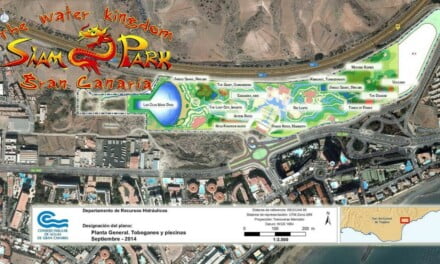The list of fines handled by state security forces and various bodies is included in the Citizen Security Law, known as the gag law; in public health law, that of civil protection and the Penal Code.
Those who fail to comply with these established measures may face, for example, penalties of between 100 and 600 euros for removing a barrier, fence or seal; up to 30,000 euros for refusing to identify yourself to an agent or up to 60,000 for conduct that seriously jeopardizes the health of the population.
The crime of disobedience towards law enforcement officers or private security personnel is punishable by one to three months in prison. With penalties of up to four years in prison possible (health personnel are included among “police officers” for this purpose).
The Executive say they are not seeking to fine people, and that every case will be handled proportionally, but that the government is relying on civility and the responsibility of citizens, so it has not wanted to regulate in detail the possible sanctions, which are limited to the provisions of the state of emergency law from 1981 and its implementation under the citizen security Law.
This is a health crisis and not a security crisis, the Government insists, so sanctions for noncompliance with the decreed regulations will be dealt with in accordance with ordinary laws that already include crimes such as disobedience in the most extreme cases.
The sanctioning regime for fines is as follows:
Citizen security law
Article 37.15. The removal of barriers, tapes or other fixed or mobile elements placed by Security Forces to delimit security perimeters, even as a preventive measure, when it does not constitute a serious infraction.
Slight penalty: fine of 100 to 600 euros.
Article 36.6. Disobedience or resistance to authority or its agents in the exercise of their functions, when they do not constitute a crime, as well as the refusal to identify themselves at the request of the authority or its agents or the allegation of false or inaccurate data in the identification processes.
Serious penalty: fine of 601 to 30,000 euros.
General Law of Public Health
Article 57.2.b). Serious offense:
fine of 3,001 up to 60,000 euros.
1º Conduct or omissions that may produce risk or serious damage to the health of the population, when it does not constitute a very serious offense.
Article 57.2.a) Very serious infraction:
fine of 60,001 up to 600,000 euros.
1. Behaviors, conduct or omissions that produce risk or very serious damage to the health of the population.
2. Repeated non-compliance with instructions received from a competent authority, or non-compliance with a requirement thereof, if it involves serious damage to health.
National Civil Protection System Law
Article 45.4 b) Serious infraction:
fine of 1,501 to 30,000 euros.
During declared emergencies, noncompliance with orders, prohibitions, instructions or requests made by the heads of the competent bodies or the members of the intervention and assistance services, as well as duties of collaboration with the surveillance and protection services of public or private companies, when it is not particularly dangerous or transcendent for the safety of people or property.
Article 45.3. Very serious offense:
fine from 30,001 to 600,000 euros.
During declared emergencies, noncompliance with orders, prohibitions, instructions or requests made by the heads of the competent bodies or the members of the intervention and assistance services, as well as the duties of collaboration with surveillance and protection services of public or private companies, when it is particularly dangerous or important for the safety of people or property.
– Penal Code
Article 556.
Punishable with a prison sentence of between three months & one year or a fine of six to eighteen months wages, those who, without being included in article 550, seriously resist or disobey the competent authority or its agents in the exercise of their functions, or duly identified private security personnel who carry out private security activities in cooperation and under the command of the Security Forces and government bodies.












